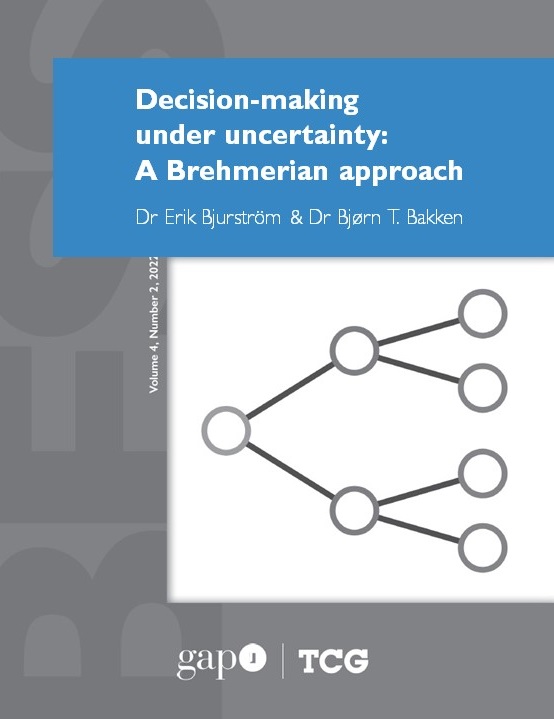Decision-making under uncertainty: A Brehmerian approach
DOI:
https://doi.org/10.54337/ojs.bess.v4i2.7749Abstract
This article discusses the contributions of the late Professor Berndt Brehmer with an emphasis on dynamic decision making under uncertainty. This concept has a long history as ambiguity implied in selective attention, later emphasised by prospect theory, which incorporates a time dimension. Time may be a solution to problems of uncertainty, not least the timing of decisions with each other and with environmental developments. This approach sees decision making, from a process perspective, ultimately asking whether it makes sense to frame decisions as specific events or as an expression of an ongoing design process where the possibility spaces are expanded rather than limited to decision making among pre-existing alternatives. A dynamic view of the time dimension also encourages decision making as learning through probing actions and negotiation and collaboration, as well as with the environment. As much as this may sound like a recipe for managing second-track processes, it is also a recipe for managing through direct interaction, albeit a less-than-objective one understood through the biased perception of boundedly rational actors.

##submission.downloads##
Publicerad
Nummer
Sektion
Licens
Copyright (c) 2022 Prof Erik Bjurström, Prof Bjørn T. Bakken

Detta verk är licensierat under en Creative Commons Erkännande-IckeKommersiell-IngaBearbetningar 3.0 Internationell licens.
This journal provides immediate open access to its content on the principle that making research freely available to the public supports a greater global exchange of knowledge.
Articles published in BESS follow the license Creative Commons Attribution-NonCommercial-NoDerivs 3.0 Unported (CC BY-NC-ND 3.0)
Authors retain copyright and grant the journal right of first publication with the work simultaneously licensed under a Creative Commons Attribution License: Attribution - NonCommercial - NoDerivs (by-nc-nd).
Further information about Creative Commons




